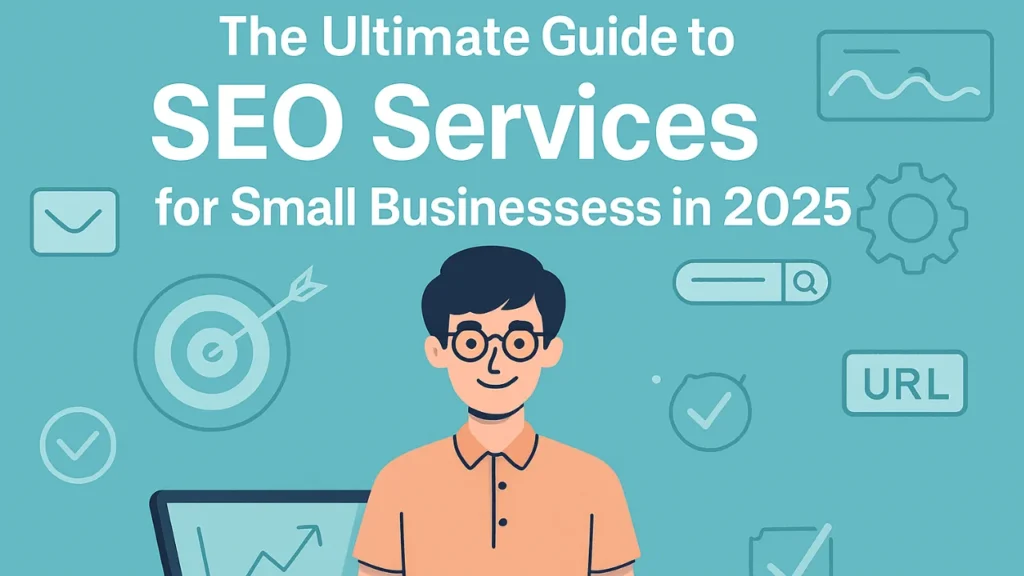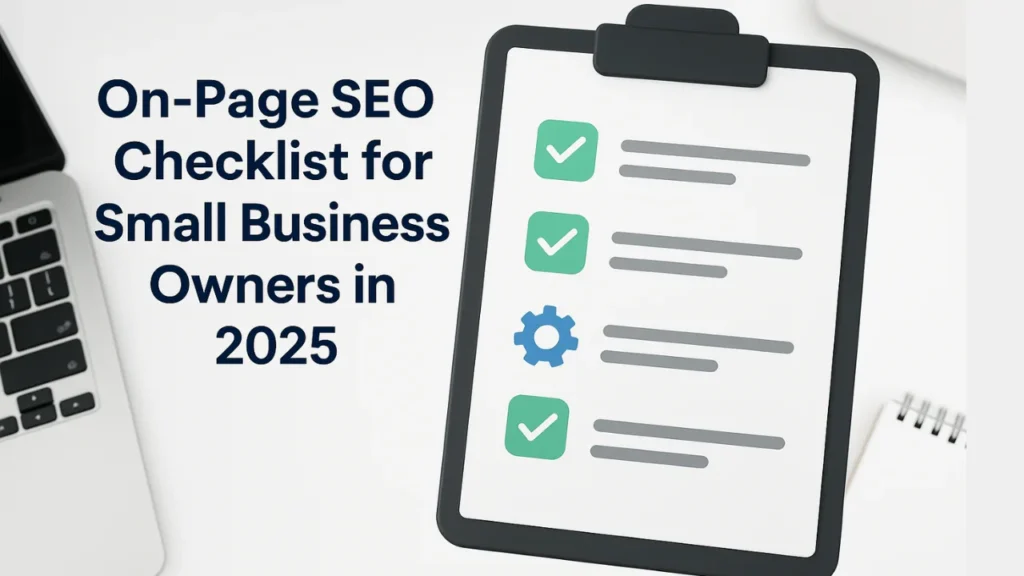Table of Contents
ToggleIntroduction
Search engine optimization (SEO) is one of the most effective ways for small businesses to attract customers online. But to succeed, you need the right tools. With so many free and paid options available, choosing the best ones can feel overwhelming. That’s why in this article, we’ll review the 9 Best SEO Tools for Small Businesses (Free & Paid Options)—to help you save time, money, and effort while boosting your online visibility.
Struggling to get your website noticed on Google while competitors outrank you?
Without the right SEO tools, you risk wasting time on tactics that don’t work, missing local customers, and failing to optimize your site properly. Many tools are also too expensive or too complicated for beginners.
In this guide, I’ll share nine beginner-friendly SEO tools—both free and paid—that can help you rank higher, attract more traffic, and reach the right customers. By the end, you’ll know which tools fit your needs and budget so you can finally see real results.
What To Look For in SEO Software for Small Businesses
Before jumping into tool names, let’s define the key features you need. This ensures the tools you choose deliver real value.
- Ease of use: Beginner‐friendly dashboards, helpful tutorials, clear interfaces.
- All‐in‐one SEO toolkit vs. specialized tools: Do you need a full suite covering audits, backlinks, keyword research, local SEO optimization tools, content optimization, or just one or two components?
For a deeper dive, here’s a complete guide on keyword research step-by-step for small business websites to help you target the right terms.
- Free vs. Paid options: Free SEO tools for beginners are great to start; paid SEO platforms offer more depth and advanced data.
- Local SEO support: If you serve a local market, tools that help with Google Business Profile, local keyword targeting, maps pack, reviews, etc, are crucial.
- Competitor analysis: Understanding what your rivals do (keywords, backlinks, content) helps you find opportunities.
Performance tracking & assurance of trust: You want accurate data, reliability, and support.

If you want a complete step-by-step breakdown of how SEO works for small businesses, check out our detailed guide: SEO Services for Small Businesses in 2025.
Top 9 Best SEO Tools for Small Businesses
Here are nine tools that balance power, affordability, and ease of use. I’ve grouped them in roughly increasing order of cost/complexity, so you can see what fits whether you’re just starting or ready to invest more.
1. Google Search Console (Free)
What it is:
Google Search Console is a must-have tool every small business website should set up from day one. It shows how your site performs in Google search results.
Key Benefits:
- Discover which keywords and pages bring in the most traffic.
- Spot technical issues like crawl errors, broken links, or mobile usability problems.
- Monitor site speed and identify areas to improve user experience.
Why It’s Great for Beginners:
It’s free, reliable, and provided directly by Google—so the data is accurate and trustworthy. Even with basic use, you can uncover quick wins like optimizing high-traffic pages or fixing SEO errors.
Want to avoid costly errors? Here’s a list of SEO mistakes to avoid for small business websites and how to fix them.
Limitations:
It doesn’t offer deep competitor analysis or detailed backlink data, and reporting may sometimes lag.
2. Google Analytics (Free)
What it is:
Google Analytics is Google’s free web analytics tool that tracks how people find and interact with your website. In 2025, most businesses use Google Analytics 4 (GA4), which provides event-based tracking for a more complete view of customer journeys.
Key Benefits:
- Monitor visitor behavior such as bounce rate, average engagement time, and conversions.
- Understand which channels (organic search, social, paid ads, referrals) bring in the most valuable traffic.
- Track goals like form submissions, calls, or purchases to measure ROI.
- Get insights into cross-device and multi-channel user activity with GA4’s advanced reports.
Why It’s Great for Beginners:
It’s free, easy to set up, and integrates seamlessly with Google Search Console—giving you both visibility (SEO data) and engagement (user data) in one place. Even with a basic setup, you can quickly identify which pages work best and where improvements are needed.
Limitations:
Google Analytics doesn’t provide competitor insights or detailed backlink data. Also, GA4’s new interface may feel complex at first, so there can be a short learning curve for beginners.
3. Yoast SEO (WordPress Plugin)
What it is:
Yoast SEO is a popular WordPress plugin designed to simplify on-page optimization. It guides you while creating content by improving elements like meta titles, descriptions, schema markup, internal linking, and readability—without needing technical expertise.
Key Benefits:
- Get real-time SEO and readability suggestions as you write blog posts or pages.
- Automatically generate XML sitemaps, set canonical URLs, and manage structured data.
Why It’s Great for Small Businesses:
Ideal for WordPress sites, allowing non-technical users to apply professional SEO practices.
Trade-offs:
Mainly focuses on on-page SEO; advanced features require a premium upgrade.
4. Rank Math (WordPress Plugin)
What it is:
Rank Math is another top WordPress plugin for on-page optimization with similar goals as Yoast, but a different interface and features.
Key Benefits:
- Built-in local SEO features (especially in premium plans) to help small businesses appear in local searches.
- Streamline content optimization directly inside WordPress.
Why It’s Great for Small Businesses:
Extremely beginner-friendly and supports professional SEO without hiring a developer.
Trade-offs:
Also focuses mainly on on-page SEO and requires a premium for some advanced functions.
5. Ubersuggest (Free & Paid)
What it is:
A mid-tier tool that offers keyword research, site audits, competitor analysis, backlink tracking, and content ideas.
Key Benefits:
- Affordable paid plans; free version gives keyword suggestions and SEO audits.
- Clean UI with clear metrics, easy for beginners.
Why Choose It:
Great for moving beyond basic free tools without the high cost of enterprise suites.
Limitations:
Data depth and freshness may lag behind premium tools; the free version is limited.

6. Ahrefs (Paid)
What it is:
One of the most powerful and trusted paid SEO platforms.
Strengths:
- Excellent backlink analysis, strong keyword explorer, and great site audit tools.
Weaknesses:
- More expensive; steeper learning curve; some features may be overkill for tiny sites.
Best Use Case:
Building authority, monitoring backlinks, deep competitor research, and scaling content.
7. SEMrush (Paid)
What it is:
A very robust all-in-one SEO toolkit covering keyword research, site audits, social media, PPC data, and competitor tracking.
Strengths:
- Comprehensive platform for many SEO tasks—content optimization, local SEO, and performance tracking.
Weaknesses:
- Higher cost; complexity; you might only use part of what you pay for.

8. Screaming Frog (Free & Paid)
What it is:
A technical SEO crawler that checks your site like a search engine would.
Key Benefits:
- Finds broken links, duplicate content, missing metadata, redirect chains, etc.
- Free version lets you crawl a limited number of URLs; paid unlocks full features.
Why It Matters:
Technical SEO issues often quietly harm rankings; Screaming Frog reveals them so you can fix them.
9. Surfer SEO (Paid)
What it is:
Surfer SEO is a content optimization tool that analyzes top-ranking pages and provides actionable recommendations for word count, keyword use, headings, and structure.
Key Benefits:
- Guides content strategy by showing which topics and keywords perform best.
- Suggests improvements to headings, paragraphs, and keyword placement for better rankings.
Why It Matters:
Even great content can underperform if not optimized. Surfer SEO bridges the gap, helping small businesses improve visibility and compete with top-ranking sites.
Comparison & How to Choose
Here are questions to help you pick what’s right for your small business:
- Budget available: Are you working with zero budget, a small monthly budget, or can you invest more upfront?
- Primary goals: Is your priority content, local customers, brand awareness, backlinks, or audit & fixes?
- Skill level & time: Do you have SEO know-how, or are you a beginner? How much time can you spend learning tools?
- Scale and scope: Is your site small (a few pages) or larger? Will you need multiple users, multiple sites?
Quick Tool Summary
Tool | Free Option? | Main Strengths | Best For |
| Google Search Console | Free | Performance tracking, indexing, and technical insights | Beginners starting out |
| Google Analytics | Free | User behavior, traffic analysis | Tracking traffic sources |
| Yoast SEO | Free (Basic) | On-page SEO, content readability | WordPress content sites |
| Rank Math | Free (Basic) | On-page SEO, local SEO | WordPress users |
| Ubersuggest | Free & Paid | Keywords, competitor insights | Limited budget |
| Ahrefs | Paid | Backlink profile, audits | Scaling businesses |
| SEMrush | Paid | All-in-one SEO, PPC | Deep insights |
| Screaming Frog | Free & Paid | Technical crawling | Websites with many pages |
| Surfer SEO | Paid | Content optimization | Content-rich sites |
Tips to Get the Most Out of Any SEO Tool
- Start with a free audit.
- Focus on one or two tools at first.
- Use data & act on it.
- Check local SEO.
- Measure progress.
Get help from our experts today—explore our custom SEO solutions for small businesses to save time and achieve real, measurable results.
Conclusion
Choosing among the best SEO tools for small businesses isn’t about picking the most expensive platform—it’s about matching your needs to tools that help you perform SEO audits, optimize content, track competitors & backlinks, and connect with local customers. Free SEO tools like Google Search Console or WordPress plugins give you a solid foundation. Mid-level tools like Ubersuggest or Screaming Frog fill technical or competitive gaps. And premium platforms like Ahrefs or SEMrush deliver power, depth, and sophistication when you’re ready to scale.
Take Your SEO to the Next Level
Want to stop guessing and start seeing real results? GlobalRankWeb creates custom SEO plans designed for small businesses. Our team uses smart tools and proven methods to bring more visitors to your website, improve your search rankings, and reach the right local customers—all while staying within your budget.
Let’s Talk About Your Growth Goals – book a no-pressure consultation today and find out how our SEO services can help your business grow for the long term.







